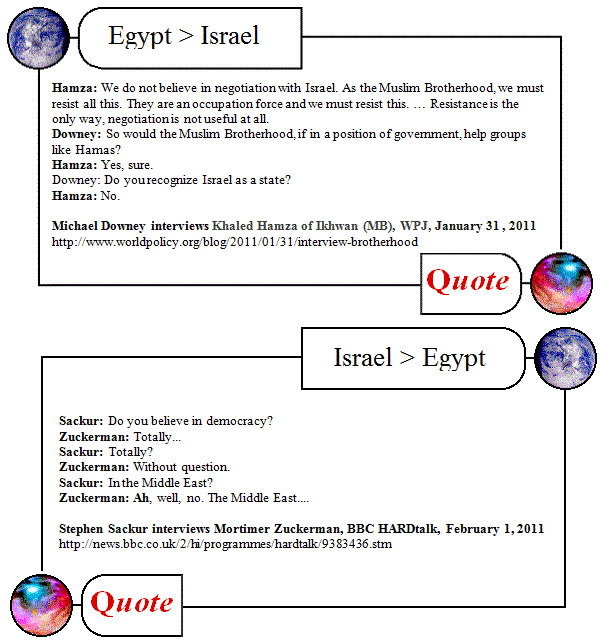Archive for the ‘totalitarianism’ Category
A Multi-Disciplinary Approach?: Coerr’s The Eagle and the Bear Outline
Thursday, October 20th, 2011Here is something for the learned readership to chew on.
As you are probably all aware, in the hard sciences it is common for research papers to be the product of large, multidiciplinary, teams with, for example, biochemists working with physicists, geneticists, bioinformatics experts, mathematicians and so on. In the social sciences and humanities, not so much. Traditional disciplinary boundaries and methodological conservatism often prevail or are even frequently the subject of heated disputes when someone begins to test the limits of academic culture
I’m not sure why this has to be so for any of us not punching the clock in an ivory tower.
The organizer of the Boyd & Beyond II Conference, Stan Coerr, a GS-15 Marine Corps, Colonel Marine Corps Reserve and Iraq combat veteran, several years ago, developed a very intriguing analytical outline of thirty years of Afghan War, which I recommend that you take a look at:
The Eagle and the Bear: First World Armies in Fourth World Insurgencies by Stan Coerr
There are many potential verges for collaboration in this outline – by my count, useful insights can be drawn by from the following fields:
Military History
Strategic Studies
Security Studies
COIN Theory
Operational Design
Diplomatic History
Soviet Studies
Intelligence History
International Relations
Anthropology
Ethnography
Area Studies
Islamic Studies
Economics
Geopolitics
Military Geography
Network Theory
I’m sure that I have missed a few.
It would be interesting to crowdsource this doc a little and get a discussion started. Before I go off on a riff about our unlamented Soviet friends, take a look and opine on any section or the whole in the comments section.
Panappticon
Sunday, February 20th, 2011[ by Charles Cameron ]
It’s riveting to follow the tweets on protests in Bahrain, Egypt, Libya or Iran on Mibazaar in real-time to be sure — but mash that capability up with the one Shloky found and Zen just mentioned with video…
As Zen says, I mean, “automatic face-recognition and social media aggregation raises serious concerns about the potential dangers of living under a panopticon state”.
Two dots, two data-points, two apps connected.
DQ Egypt: impact on Israel
Wednesday, February 2nd, 2011[ by Charles Cameron [hoping Zen’s ISP will be back up shortly] — cross-posted from ChicagoBoyz ]
Someone posted an excerpt from an interview with Khaled Hamza, the webmaster of the Muslim Brotherhood, as a comment on an earlier post of mine on ChicagoBoyz, where I also blog, and I was interested enough to track the original interview down, and have presented the key points of the excerpt here in Quote #1.
I am pairing it, in Quote #2, with an excerpt from an interview the BBC recently conducted with Mortimer Zuckerman – because I find the two quotes taken together suggest something of the complexity of the breaking situation in the Middle East.
*
I’d like to float a trial balloon / try a though experiment, if I might. And since I’m more “tail” than “left” or “right wing”, I’ll be posting this in more than one place, and hope to get comments from all sides…
On the face of it, Zuckeman is applying what’s arguably a racist double-standard. He advocates democracy, “totally” and “without question” – but not for the Egyptians, or at least not today or tomorrow.
On the face of it, the Egyptian public seems distinctly unenthused by Mubarak’s regime and will, in a democratic election, presumably vote in a fair number of Muslim Brotherhood representatives – though it’s by no means clear that they would be in the majority, and their present ideology in any case is closer to the processes of electoral politics than those of violent jihad.
So there is reason for Israel to be concerned, and reason for those who support democracy to see some hope for democracy, in the ongoing events in Egypt.
Let me put it this way: Quote #1 illustrates why Zuckerman might make the remarks quoted in Quote #2, while Quote #2 illuminates why Hamza might make the remarks quoted in Quote #1.
*
And here’s the thought experiment — I’d like to come at this from a Maslovian angle.
Maslow’s Hierarchy of Needs
I’d like to suggest that “democracy” is an ideal, or to get away from that word with its somewhat ambiguous political connotations, an activity of the “the better angels of our nature” – and thus, from a Maslovian perspective, an aspect of a group or nation’s “self-actualization” level of interest, whereas “stability” would fall under “safety” or even “physiological”.
If that’s right, Zuckerman is at least arguably articulating a “stability first, eventual democracy would be ideal” position.
Does that “Maslovian” formulation throw any additional light on the situation?
*
The problem with the position I just described is nicely articulated by Mohammad Fadel at the very end of a Foreign Policy post, Can Black Swans lead to a sustainable Arab-Israeli peace? — and it’s only his conclusion I’m quoting here:
Tunisia and Egypt have demonstrated categorically that any peace which relies on the stability of police states is doomed from the outset.
If a butterfly flapping its wings in Brazil can in theory cause a tornado in Texas – heaven alone knows what someone blinking in Cairo or Jerusalem or Washington can do.
Myself, I pray for empathy, which seems a reasonable request, I hope for wisdom, which seems a great deal more chancy — and I long for peace.
In the current environment of hatred and mistrust, that seems entirely beyond the capacity of anyone’s present thinking to achieve.
Quite Cool, But…..
Friday, January 14th, 2011
Commercialization of a step toward singularity. Impressive!
Now, all those in favor of having corporations record your unique brainwave patterns and share that data with third parties raise your hands.




